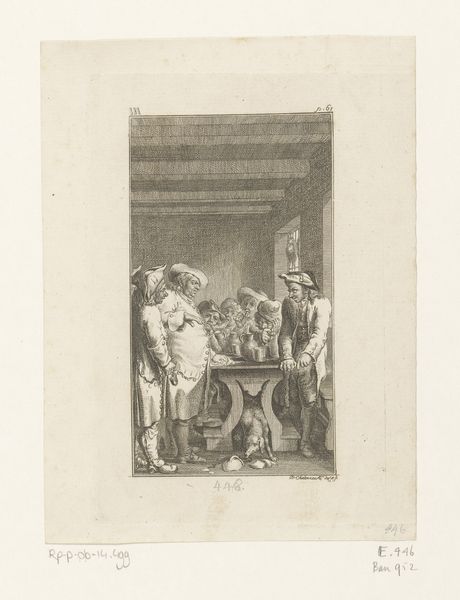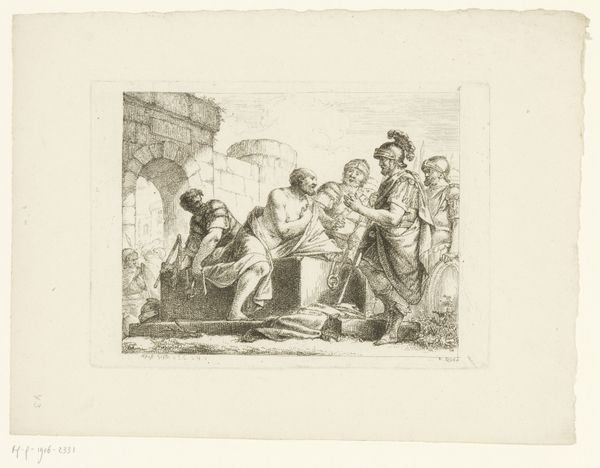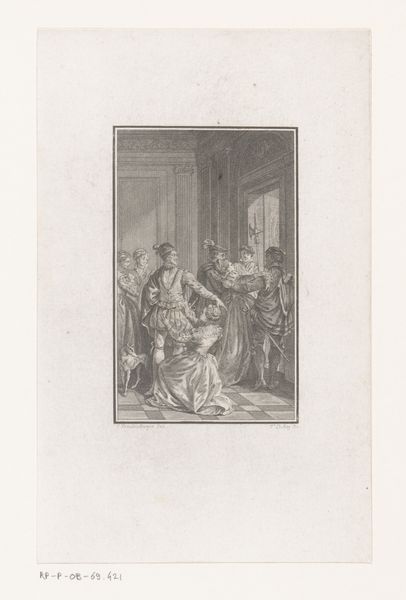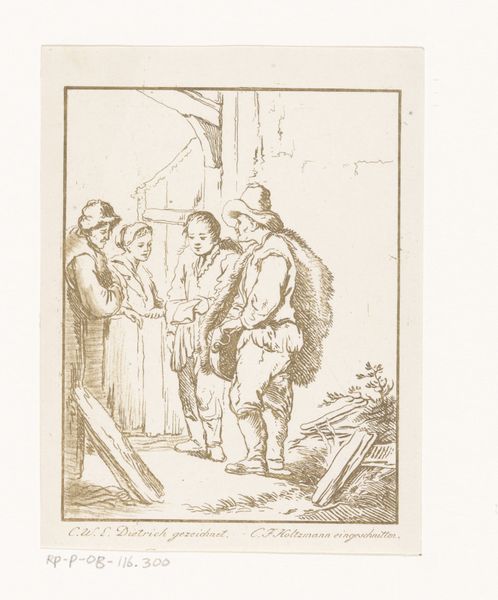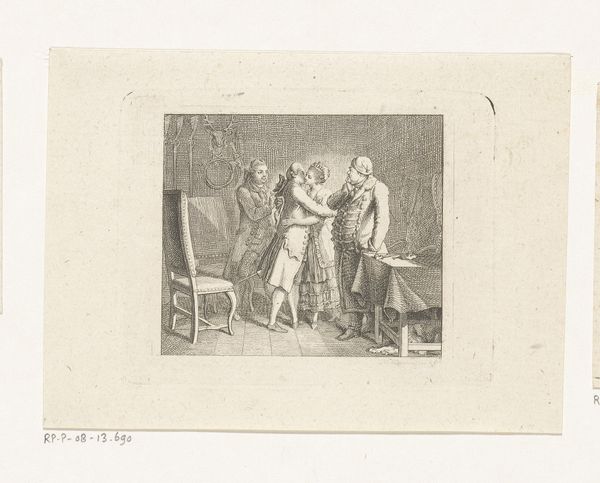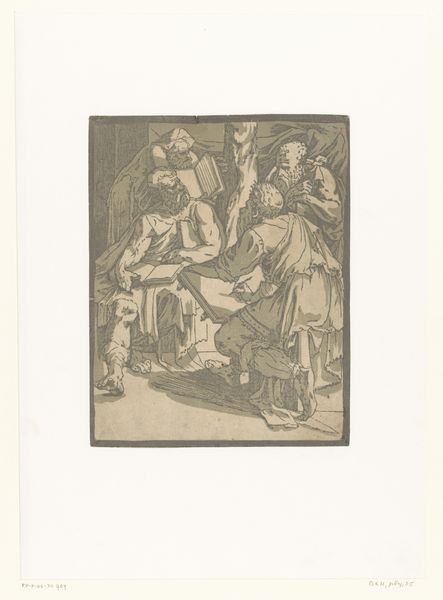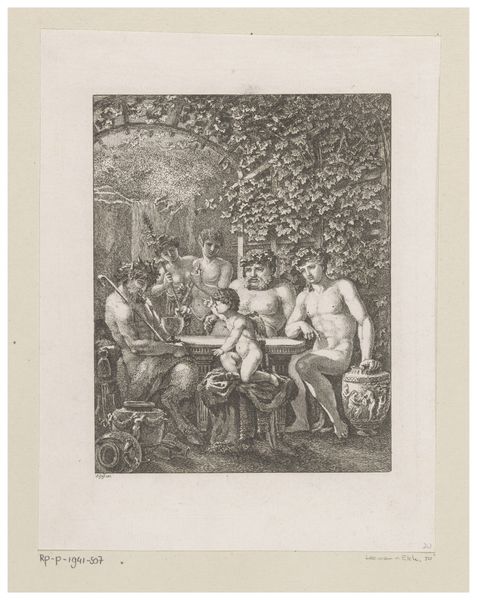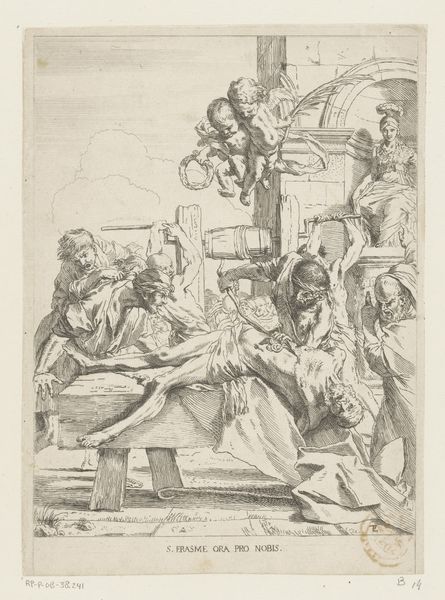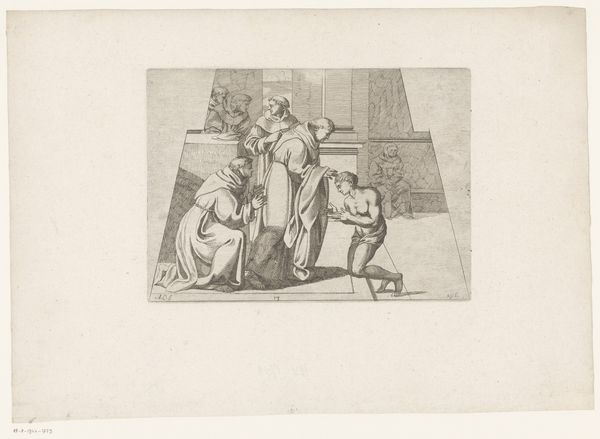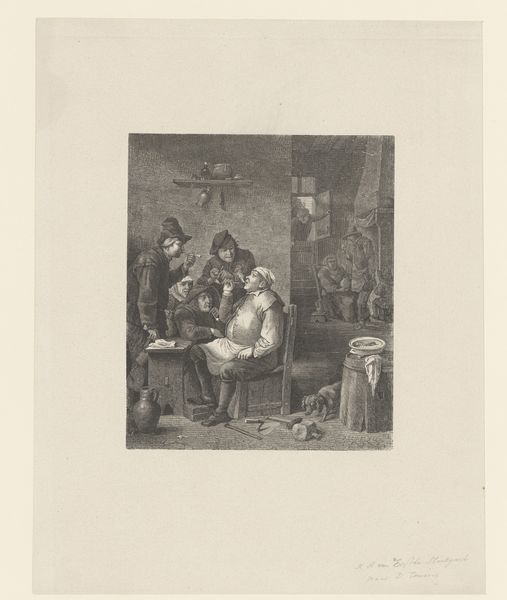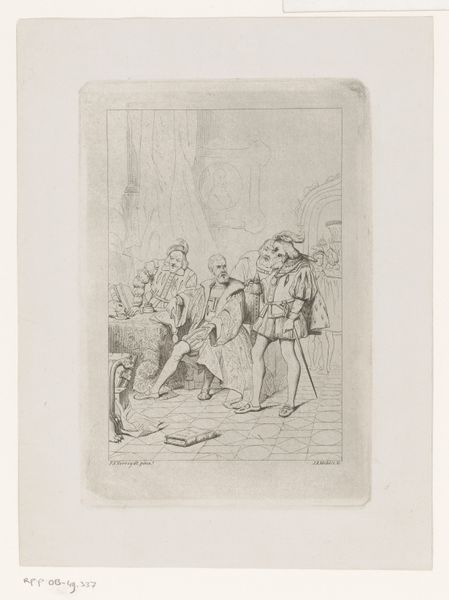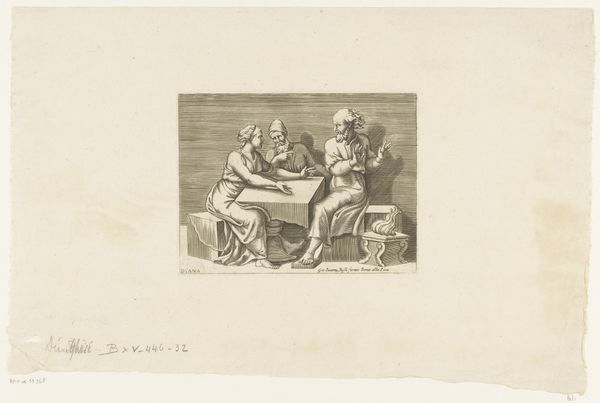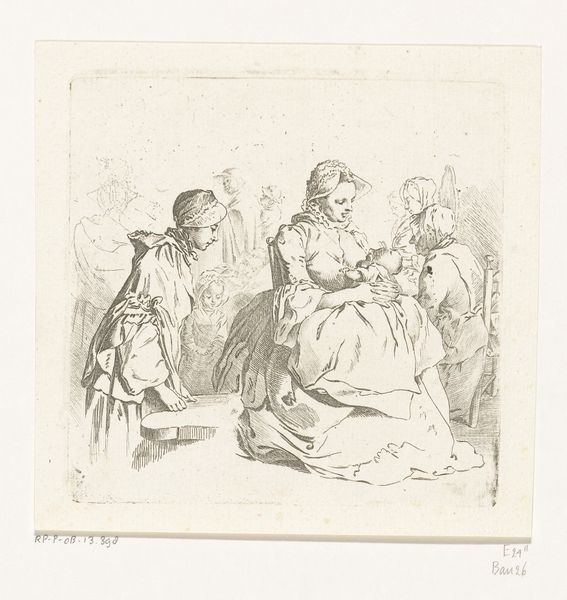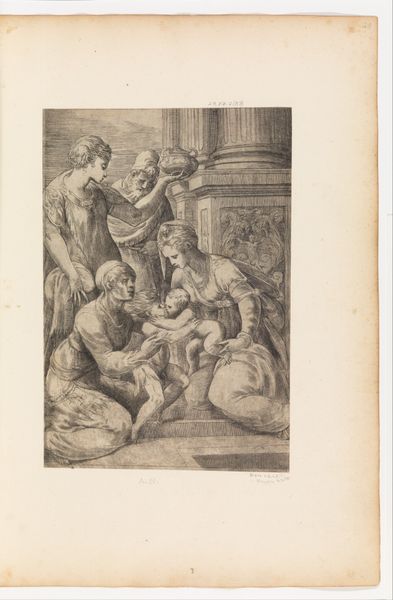
drawing, print, etching
#
drawing
#
narrative-art
# print
#
etching
#
pencil sketch
#
old engraving style
#
etching
#
figuration
#
group-portraits
#
history-painting
Dimensions: height 130 mm, width 105 mm
Copyright: Rijks Museum: Open Domain
Editor: This is "Bruno at the Dice Table" etched by Johan Bernhard Wittkamp in 1857. The scratchy lines create a tense atmosphere around what seems like a fraught game. What kind of story do you think Wittkamp is telling here? Curator: A very human one, wouldn’t you say? The gamble – the risk, the bravado – it's timeless, really. See how the artist captures the central figure's explosive energy, his posture a mix of defiance and desperation? The clustered figures, they feel both supportive and predatory. Are they friends? Foes? I imagine the artist might have felt trapped in similar scenarios…aren't we all at some point? Editor: So it’s not necessarily about the historical “Bruno,” whoever he was? Curator: History bleeds into allegory. Wittkamp likely used this "Bruno" as a stand-in for any person at the edge of their fortune, their decisions. The rough etching style? It mirrors the raw emotions, the jagged edges of the scene. What do you make of that chair on the side? Abandoned. Missed opportunities perhaps? Editor: I hadn’t noticed it. The way the chair's partially cropped out almost gives it an eerie quality of detachment. Makes you wonder what that person was feeling when they walked away. Curator: Exactly! Art speaks when you meet it halfway, I think. What started as history for the artist maybe has become something new again as it exists for us here and now. Editor: So, looking closer, this etching has way more layers than I initially saw. It feels relevant to things that are still felt. Curator: Indeed, isn't that what keeps drawing us back? Pieces aren’t ever really "done" when they leave the artist.
Comments
No comments
Be the first to comment and join the conversation on the ultimate creative platform.
